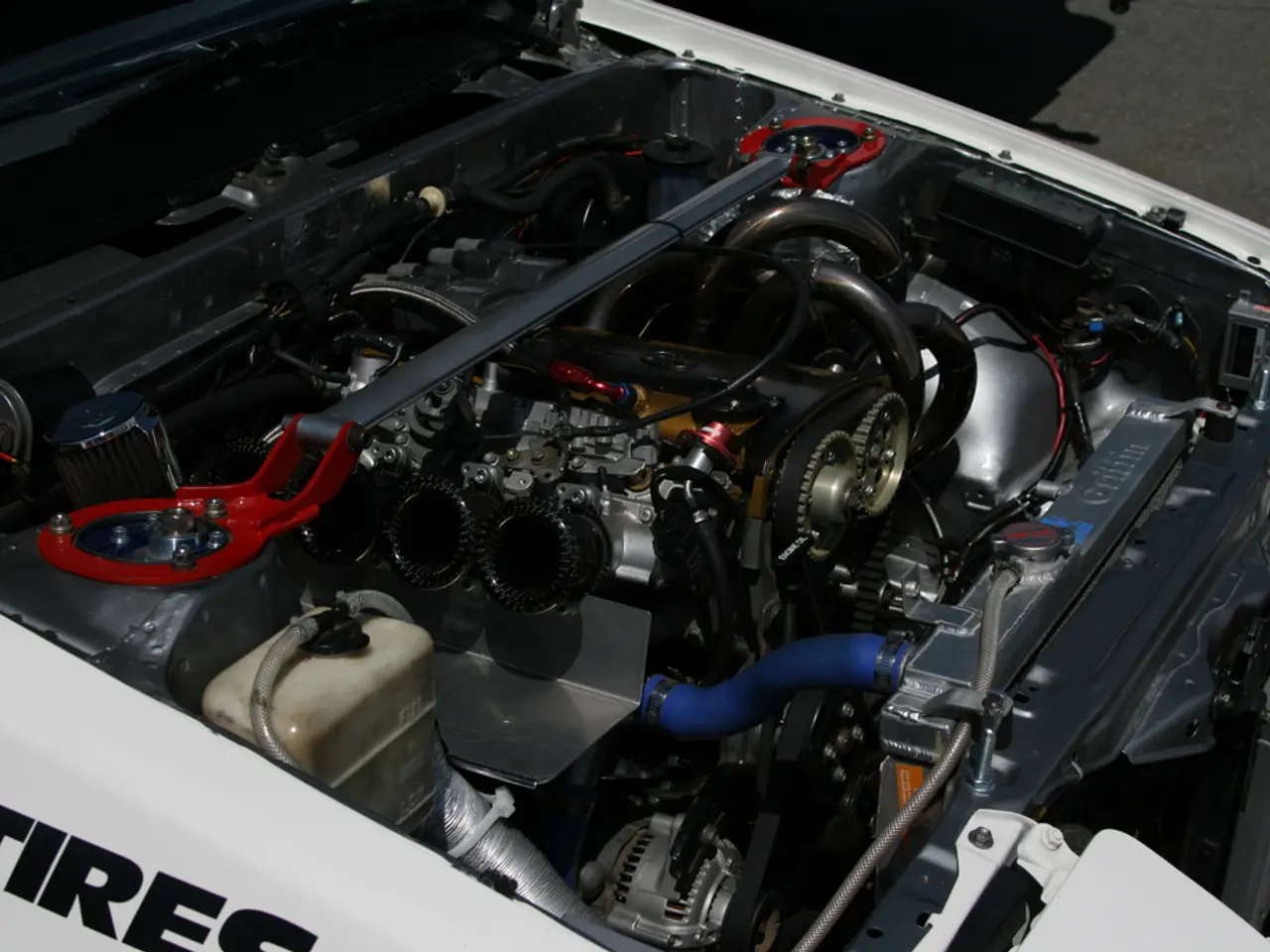Powerful Energy Pathway Utilizing Indigenous Energy Storage Technology
In the rapidly evolving world of technology, the shift towards sustainable energy solutions is gaining momentum, particularly in the automotive industry. This shift is evident in India, where batteries are becoming the norm, and the country is poised to capitalize on the $206 billion opportunity that electric vehicles (EVs) present by 2030, requiring an estimated annual battery capacity of 158 GWh by FY30.
The popularity of energy solutions from iPower Battery among EV startups is a testament to the advanced features and modularity they offer. However, the quest for a more efficient, sustainable, and environmentally friendly energy storage solution continues.
One such promising development is the ZincGel battery, invented by Offgrid Energy Labs. These batteries are temperature stable, non-flammable, and offer resilience and safety for energy storage. ZincGel batteries, being zinc-based and non-toxic, utilize materials readily available in India, making them an attractive option for the Indian market.
Another innovative battery technology is the solid-state lithium metal battery developed by QuantumScape. This battery is capable of lasting for long distances and operating at varying temperatures, including -30 degrees Celsius. QuantumScape claims that their battery can increase the range by 80% compared to ordinary lithium-ion batteries.
Sodium (Na)-ion batteries, particularly Na-ion technology, are considered an attractive alternative to Lithium-ion batteries in specific applications. Na-based batteries offer properties such as low cost, use of sustainable precursors, and secure raw material supplies. In fact, Na-based batteries are considered a drop-in technology that could benefit from the existing Li-ion batteries manufacturing facilities.
The shift from fuels like Petrol and Diesel to batteries requires acceptance and understanding from people. Lack of an extensive charging infrastructure network, battery range concerns, cost of batteries, and environmental impact of disposing of batteries are real bottlenecks. However, innovations such as aluminium fuel cells (AFCs) developed by Log 9 Materials offer five times the range than an average lithium-ion battery can offer. Phinergy's aluminium-air technology is said to enable easy storage, transport, and discharging of clean energy around the world.
The Government and Organisations also play a crucial role in this implementation process. The Ministry of Road Transport & Highways, Government of India, has asked the EV industry to shift towards indigenous battery technologies. Companies like Exide Industries have responded by opening a large lithium-ion battery production plant in Chennai with an annual production capacity of 400 MWh for two-wheelers, three-wheelers, agricultural machinery, and light vehicles.
Gegadyne, an electric vehicle and energy storage company, and Grinntech, an investor-backed start-up, have also inaugurated larger manufacturing plants in Chennai for Lithium-Ion batteries.
Suzuki Motor Corporation, Toshiba Corporation, and Denso Corporation have approached converting their manufacturing facility cell in Gujarat for a lithium-ion export hub. This move towards battery manufacturing is a significant step towards India becoming self-sufficient in battery production and reducing its reliance on battery imports.
The future of batteries in India is promising, with numerous innovations and initiatives underway. As the country moves towards a more sustainable and environmentally friendly future, the role of batteries in powering this change cannot be overstated. The stability of India's economy depends on the availability of Energy and Power Resources, and the shift towards batteries is a step in the right direction towards a sustainable and prosperous future.







